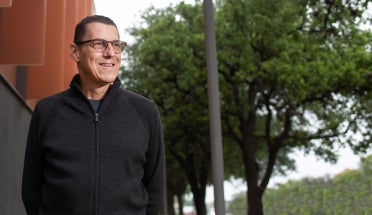
UT Austin Recognized as Gilman Top Producing Institution
- Apr 6, 2018
- Education Abroad
The U.S. Department of State announced its inaugural list of U.S. higher education institutions that sent the most students overseas on the Benjamin A. Gilman International Scholarship Program in the academic year 2016-2017. The University of Texas at Austin has been recognized for its success in making international study and internships more accessible and inclusive for American students of all backgrounds through the Gilman Program.
The State Department’s Bureau of Educational and Cultural Affairs, in collaboration with the Institute of International Education, compiles the list, organized by institution size and type.
Reinforcing our commitment to increasing access to global experience for our students, The University of Texas at Austin has been recognized for success in the Top Large Colleges and Universities (>15,000 undergrads) category.
“We are passionate about increasing access to study abroad opportunities and making it possible for all students, whatever their financial situation,” said Heather Thompson, Director of Education Abroad. “The Gilman Scholarship is such an important resource for our students in this pursuit and we’re delighted that UT has been recognized as one of the top Gilman producing institutions.”
For a full list of the institutions by category, please visit the Gilman Scholarship website.
The Benjamin A. Gilman International Scholarship Program, with the support of the U.S. Congress, is reshaping study abroad to make it more accessible and inclusive for American students. The Gilman Program broadens the U.S. student population that studies and interns abroad by providing scholarships to outstanding undergraduates who, due to financial constraints, might not otherwise participate. Since the program’s establishment in 2001, over 1,300 U.S. institutions have sent more than 25,000 Gilman scholars to 145 countries around the globe.
Interested media should contact the Bureau of Educational and Cultural Affairs at eca-press@state.gov.



